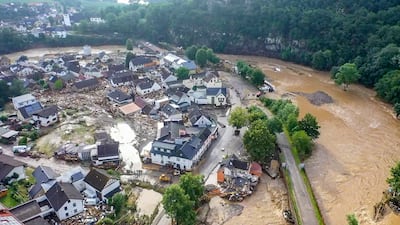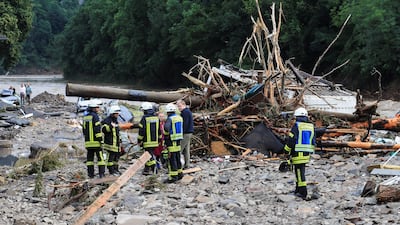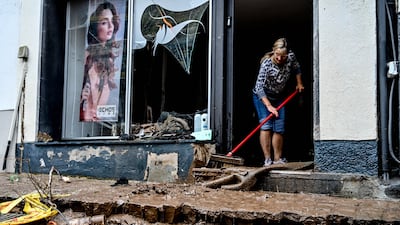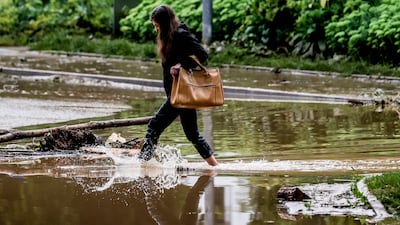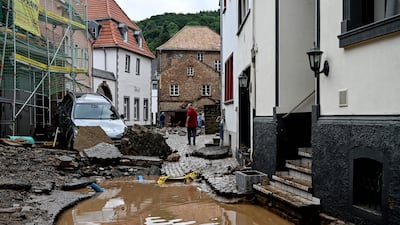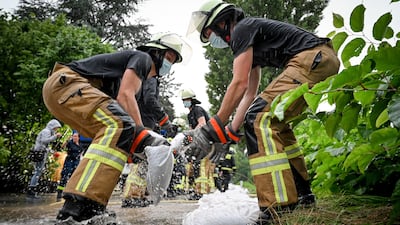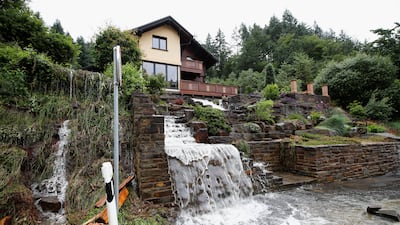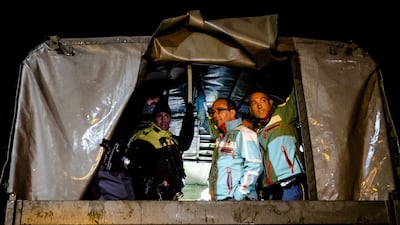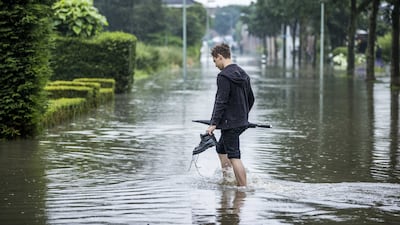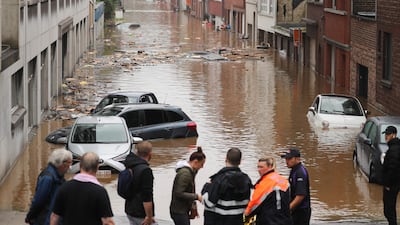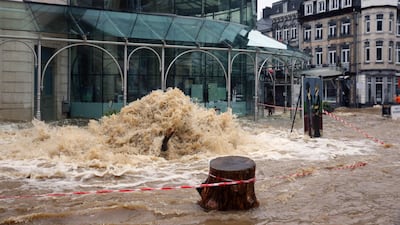The floods in Germany are a product of wild gyrations in the Atlantic Gulfstream's weather patterns. The deluge of rain dumped on the country and its neighbours is, thus, a dramatic demonstration of how nature is changing under the pressures of climate change.
The loss of life in Germany is shocking and desperately sad. People took refuge in cellars but perished in moments. The torrents have ripped apart quiet backwater towns with no history of disruption.
The political scene is only just digesting the impact of the dramatic events. Politicians campaigning for the federal election in September are struggling to respond to tragedies such as that in the town of Sinzig where 12 people with intellectual disabilities died in their dormitory as floods swept the building “in a minute”.
Floods have a way of defining the next political era across all political systems.
When China was hit by massive flooding on the Yangtze River in 1998, the official response by the government and the army reestablished a broken link with the people. Heroics appeared to justify the economic reforms launched 20 years earlier by showing that the state was becoming more competent and better resourced. From that point, an era of Jiang Zemin, the then president, could be seen to emerge and hold sway.
Germany is on the cusp.
Angela Merkel is stepping down. And when the September election comes, Armin Laschet, the chancellor candidate of Mrs Merkel’s Christian Democratic Union, will hope to succeed her. The stakes for him thrown open by the disaster could not be higher. As the Minister-President of the worst-hit state of North Rhine-Westphalia, he needs to demonstrate that he can rally and lead an effective response.
Mr Laschet appeared on German television from the scene of the emergency response and was challenged on how the issue of climate change can be addressed to ensure disasters such as this do not occur. During the campaign he faces a strong challenge from the Green Party. The unusual arc of the weather systems and the intensity of the rain are being laid at the door of the warming planet.
As the centrist and establishment candidate, Mr Laschet must sense the political danger. The floods threatened towns with ancient houses that were swept away in the rushing waters. Owners may not have been able to get insurance for the risks. The costs of the climate transition could be something they are more concerned with than global warming.
Germany has an economy dominated by heavy industry. It is investing heavily in a pipeline to bring natural gas from the east – Russia – to keep its energy supplies strong.
Mr Laschet is probably the senior politician most strongly in favour of that project. He is a great personal friend of the project’s chairman, former chancellor Gerhard Schroeder. "Excuse me, just because of a day like this, you do not change the policy,” Mr Laschet snapped on Thursday. “It does not serve anyone if the steelworks move to other places,” he told the TV hosts. “Then our carbon footprint would be good, but the CO2 would just be emitted elsewhere."
“Both you and I will still be able to fly, even if flying becomes more expensive. So you have to make it socially acceptable.”

A fellow guest railed at the remarks as a prioritisation of the prosperous German economic model over ecological concerns. “Nobody can buy their own outside temperature, not even a privately insured person, not even a millionaire,” Eckart von Hirschhausen of the forum Scientists for the Future warned.
As all this was unfolding, Mrs Merkel was being hailed as an exemplary friend of the US at the White House. President Joe Biden gave strong words of solidarity to the victims of the flood. And as she spoke in response from the other side of that Atlantic Gulfstream weather front, it was hard not to feel that the era was truly over.
The balance sheet for the US from the Merkel chancellorship is fairly mixed.
Under her leadership, for example, Germany has not been a climate leader. Mrs Merkel's decision to shut down the nuclear industry after the 2011 Fukushima Daiichi nuclear disaster in Japan boxed Germany into its choice to go with Russian gas supplies. That changed the course of Germany's post-Second World War Atlanticist foreign policy. Alongside the structural integration of the Chinese and German economies, it has resulted in real gaps between Washington and Berlin.
According to the political expert Markus Kiam, Washington is already concerned about a wider political vacuum when Mrs Merkel steps down. The shifting course of politics now post-floods and pre-election will be studied very closely. A mooted coalition between the CDU and the Greens might become politically untenable. Thus, the winner-plus-runner-up-style grand coalition government model seen under Mrs Merkel would fall apart, injecting new instability in the political system.
With Mr Biden’s climate change agenda confronting Germany to move faster, there are potential sources of friction between the two allies.
The White House meeting has come at a tragic time for Germany. This has obscured the very real divisions that have seen both leaders agree to disagree – so far.
